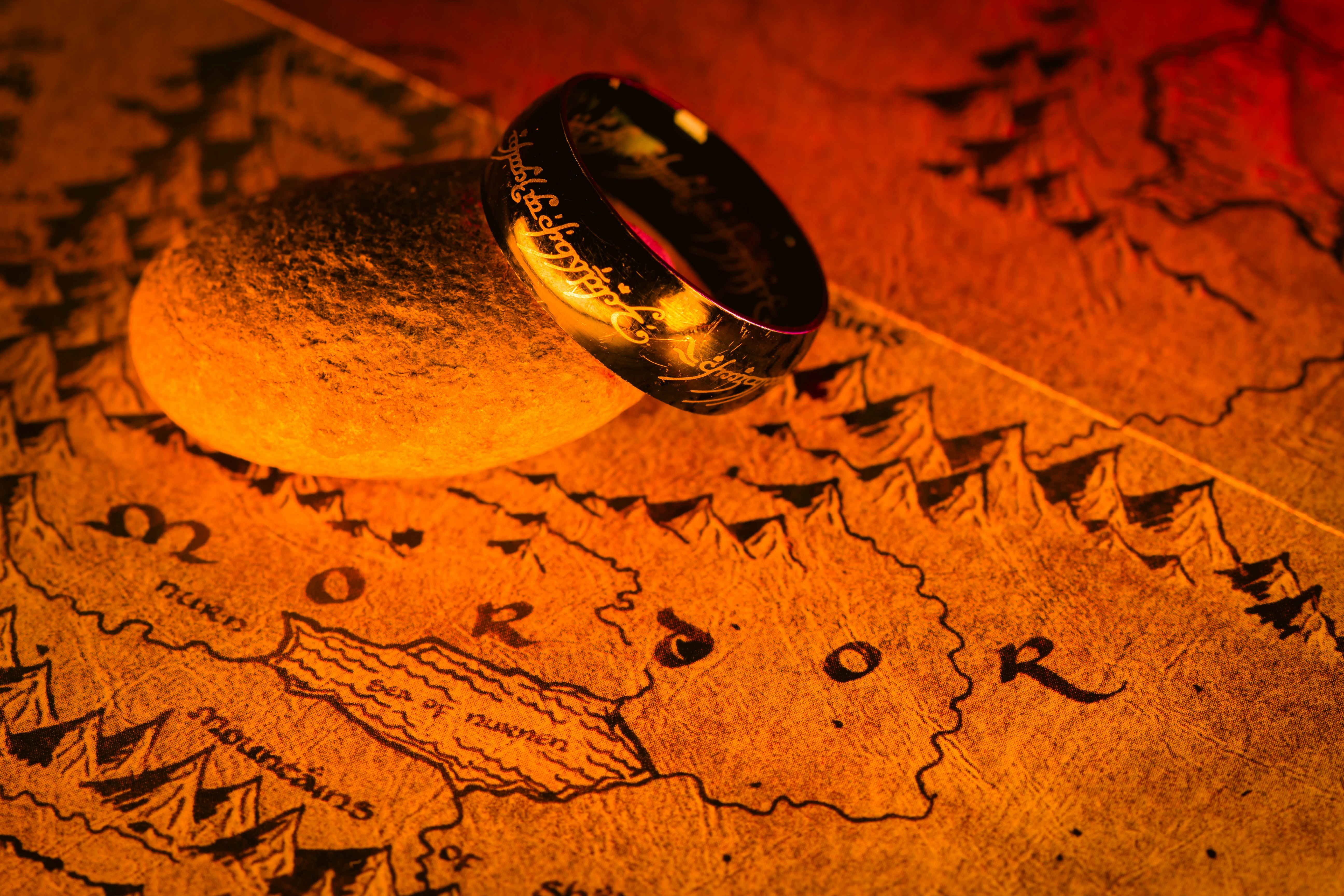A Fool’s Hope

“‘Tell me,’ [Pippin] said, ‘is there any hope? For Frodo, I mean; or at least mostly for Frodo.’
Gandalf put his hand on Pippin’s head. ‘There never was much hope,’ he answered. ‘Just a fool’s hope, as I have been told.’”
This fool’s hope is the heartbeat that keeps all the good guys moving forward in Tolkien’s mythology. When the Fellowship breaks, two seemingly weak, little-known creatures (hobbits) enter the heart of Mordor. They have two swords and some supplies to keep them alive for a few weeks. Meanwhile, the most powerful foe in all Middle Earth with his mighty army are on the lookout for them. By all reasonable assessments, the hobbits don’t stand a chance.
This seems foolish because the circumstances are so bleak; a mission accomplished is a far-fetched pie in the sky. From the characters’ perspective, their lives are miserable, and their future is bleak. From the readers’ perspective, we are on the edge of our seats waiting for something, or someone, to rescue them from their plight. And then, when all hope is lost— “The eagles are coming! The eagles are coming!” We look back on the characters’ hope, and we marvel; we desire this in our own lives amidst our own seemingly hopeless situations. Indeed, we could not marvel at their actions if hope hadn’t seemed lost.
This fool’s hope is a necessary component to the quality of a story because the fool’s hope is analogous to the salvation and renewal of the cosmos. For the disciples to see Christ as glorious in His resurrection, their hope had to be pushed to the brink of despair. A recent worship song’s lyrics capture this idea: “The calm will be the better for the storms that we’ve endured.” Permit me to illustrate with intimations of this within Homer’s Odyssey, which find their telos in the characters from Holy Scripture.
The plight of Odysseus’ life is central to the Odyssey. He’s a man who’s been away from his home for twenty years, stranded at sea and barely escaping death by cannibals, bizarre monsters, seductive sirens, a controlling goddess, and phantoms of the dead. We see his perseverant hope on numerous occasions. Most strikingly, on Calypso’s Island where she presents him with immortality in exchange for his loyalty to her, to be her everlasting lover. Amazingly, he denies the offer and chooses to hope in seeing Penelope once again. By all accounts from his perspective, with hundreds of miles of the unknown sea separating him and Ithaca, Odysseus has no real grounds for hope—just a fool’s hope.
While Odysseus weaves schemes to wiggle out of Poseidon’s plots to hinder his return home, his wife Penelope weaves a plot to delay the ungodly suitors vying for her hand in marriage, hoping all along that her beloved husband and King might return. Metaphorically weaving a scheme, Penelope literally weaves a loom during the day and unravels it at night to throw the suitors off. Her weaving is rooted in hope, the fool’s hope, which seems quite vain by all accounts. She nonetheless holds on.
We see this in the Old and New Testaments. Abraham held on to the fool’s hope, despite the seemingly unthinkable task to slaughter his son, believing God would provide a sacrifice. In the New Testament, when the Messiah died, so died the hope of the apostles. And then when He was raised, they marveled, and their lives were utterly transformed.
And in our age, we groan because of the many seemingly hopeless scenarios our lives. “And not only the creation, but we ourselves, who have the first fruits of the Spirit, groan inwardly as we wait eagerly for adoption as sons, the redemption of our bodies. For in this hope, we were saved. Now hope that is seen is not hope. For who hopes for what he sees? But if we hope for what we do not see, we wait for it with patience” (Rom 8:23–25). Hope’s object is that which cannot be seen. God conceals the next page of our own stories so that we might hope for the unseen, and this “does not put us to shame” (Rom 5:5).
In all these examples, the stories and our very lives wouldn’t be as worthy of admiration had hope never been lost. Would we really admire Odysseus’ “hope” if he knew confidently all along that he was going to make it back to Ithaca? What about the Disciples, if they didn’t doubt or become downcast when their Messiah died? No! That’s part of it: hope must diminish in order for God to show Himself glorious and as the Almighty Provider. All hope must diminish in order for readers of the classics to marvel at the steadfastness of those characters like whom we long to be. Santiago in the Gulf. Aragorn at the Black Gate. Penelope weaving her loom. Edmond Dante in Chateau d’If. King Tirian in the last days of Narnia. And we, Christians, who hope in the death of a Man—the God-Man. Such is a fool’s hope. Yet, we know that God’s foolishness is wiser than the wisdom of men (1 Corinthians 1:25). In God’s economy, the fools become wise and the wise become fools.
Colton Moore
Colton Moore is a doctoral student at Midwestern Baptist Theological Seminary and a cohost of the Christ & Classics Podcast. He is also the co-author with Ben House of Beyond the Horizon: An Appeal to Parents for Classical Christian Education.











